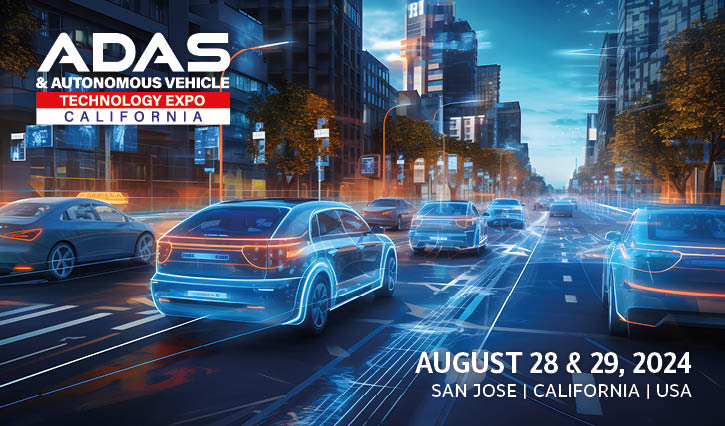Ahead of his participation in next month’s ADAS & Autonomous Vehicle Technology Expo Conference in San Jose, Dr Sven Beiker, an external advisor at SAE International, delves into how regulations and standards can best interact, and the important distinction between type-approval and self-certification
Why are regulations and standards important?
A standard is rather more of a recommendation, whereas regulation is typically a mandate.
You have to follow a regulation, otherwise your product simply isn’t allowed on the market. However, if you don’t follow a standard, this does not necessarily mean you are breaking the law; you might do it because you think it makes your work easier when you can do whatever you want. But on the other hand, if you work with a lot of suppliers and don’t follow standards, it can get much more complicated because parts might not fit or perform as expected.
Quite often, regulation references standards. For example, the Federal Motor Vehicle Safety Standards (FMVSS) are regulations in the United States that frequently reference SAE standards. A standard usually comes first, when industry says we need to make sure that we can collaborate and have similar interfaces, so that we get, for instance, some sort of plug-and-play solution in the automobile.
So, industry experts get together to create a standard. In addition to making work easier, a standard is good for manufacturers to document that their products are state of the art. You can say, “I follow the standard, which means I did what everybody else does.” This is important because with your product (automobiles), things can go wrong, unfortunately, which sometimes leads to tragedy.
In such a case, if you have to defend your product it’s good that you can say, “I followed all industry standards, same as everybody else,” as opposed to, “I didn’t care about standards, I just did what I thought was best,” in which case a judge would probably say, “So, you think you’re smarter than everybody else and you don’t need to follow the industry standard?” So even if a standard is not mandatory, it helps companies to stay state of the art and potentially defend the product.
Therefore, industry has a love-hate relationship with standards. It might be a tedious exercise to come up with standards and at times one might feel confined by them, but it is good to have them to facilitate collaboration and compare your product with an industry baseline.
What about standards and regulations for autonomous vehicles? Are those even more stringent? Does something already exist?
A self-driving vehicle is interesting because the driver is integrated into the vehicle. In the United States, the vehicle is regulated on a national level, e.g. through the FMVSS that I mentioned, and the driver is regulated on a state level, for instance through the driver’s license.
Now, you have both combined to create a very particular entity. How do you regulate that?
In my view, California has a well-developed process for this. Recognizing that what is not prohibited is typically allowed, it has regulated that launching a service with automated vehicles is prohibited unless you have followed many steps of testing, reporting and certification. Only then may you be allowed to operate self-driving vehicles, offer the service to the public and charge money for the ride. All this could be completely different in Montana, for example, which might not have established all these steps, so you can maybe have a vehicle on the road very quickly because there is nothing that regulates, let alone prohibits, that. Navigating this regulatory landscape can be a bit tricky.
To add another level of complexity, let’s talk about self-certification versus type-approval, which needs to be figured out in respective regimes. That’s what I’m quite involved in now. There are important distinctions between type-approval and self-certification.
Under the United Nations type-approval, an independent organization inspects a new product – like an automated vehicle – and checks whether it complies with all relevant regulations. If it does not, it cannot be entered into the market. In Europe, for instance, where type-approval applies, there are laws that stipulate that the driver has to be in control of a vehicle unless certain strict requirements are met. The interesting thing about type-approval is that once a vehicle gets approved in one country, this is typically also recognized by all other countries that harmonize their regulations under the United Nations. That means that if you get type-approval in Europe, this is also valid in Japan, Korea and many other places – that’s worth a lot.
 The US, by comparison, uses a system called self-certification, where the manufacturer itself attests that the new product complies with everything – in this case, basically all FMVSS. This might seem like less government oversight but there are other control mechanisms in place. However, the biggest difference from type-approval is that self-certification is not recognized by other countries. So a car manufacturer that is truly global needs to work on many different regional fronts to get a product registered before pressing the start button on a vehicle.
The US, by comparison, uses a system called self-certification, where the manufacturer itself attests that the new product complies with everything – in this case, basically all FMVSS. This might seem like less government oversight but there are other control mechanisms in place. However, the biggest difference from type-approval is that self-certification is not recognized by other countries. So a car manufacturer that is truly global needs to work on many different regional fronts to get a product registered before pressing the start button on a vehicle.
Join a lively panel discussion on August 29, Day 2 of the ADAS & Autonomous Vehicle Technology Expo Conference, to hear our experts’ thoughts on the current landscape for regulations and standards, as well as what developments might be on the horizon. The panel will also discuss possible interactions between the two, what barriers there might be to interaction and how these might be negotiated. Find out more.


